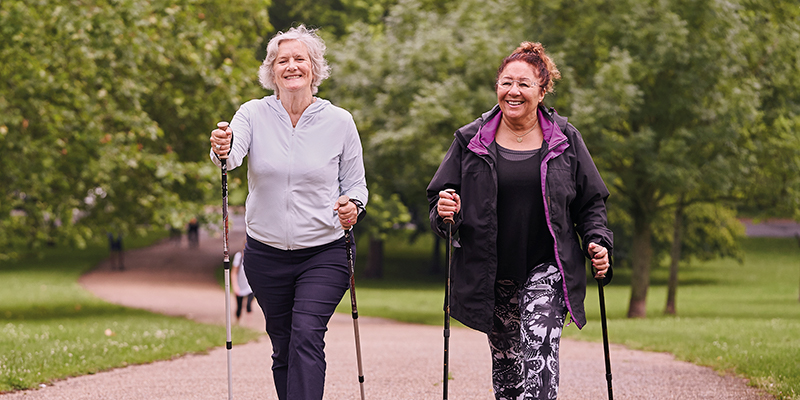
A personalised new exercise app for people with long-term health conditions including heart and lung disease and diabetes is set to be piloted by researchers from the University of Leicester.
Not only will it provide users with guidance in undertaking walking exercise but its pioneering technology uses real-time environmental data to guide a user where and at what time to undertake outdoor exercise to minimise their exposure to air pollution.
The P-STEP app, which stands for Personalised Space Technology Exercise Platform, has been developed by colleagues across several departments within the University of Leicester.
Guidance is based on space data combined with artificial intelligence which delivers accurate pollution warnings at a staggering 10-metre resolution for users in the city of Leicester and 100m resolution for the rest of the UK.
The app uses four simple bands – Good, Moderate, Poor and Very Poor to define the air quality.
Air pollution is increasingly a concern for patients with health conditions such as heart disease, COPD and asthma. Long-term exposure to air pollution is linked to decline in lung function, type 2 diabetes, problems with brain development and cognition, cardiovascular diseases and cancer. It has also been shown that exercising in polluted air space negates the benefits that come from exercise.
It is hoped the innovative app will help improve users’ health and lead to greater numbers choosing to take up and maintain a walking exercise regime to benefit them.
Professor André Ng, Head of Department of Cardiovascular Sciences and consultant cardiologist and electrophysiologist, has led the project since it began in September 2021.
He said: “Like so many doctors I see patients who don’t want to exercise or don’t know how to effectively. But this pioneering new app which uses satellite data, is able to provide personalised guidance to individuals as well as the encouragement needed to make a difference to long term health. Ultimately it can benefit the health service in the long run by improving well-being and taking some of the pressure away along with the need for medicines.”
The app was developed with the help of members of the National Institute for Health and Care Research, Patient and Public (PPI) lifestyle group who have long-term health conditions, ensuring the app has been designed for users by users.
Dr Josh Vande Hay, Associate Professor in Environmental Health, said: “We know that air quality can change quite dramatically over time, and even from street to street, so the app we’ve developed enables patients to see where best to exercise at any given moment. It provides real-time air quality information at a users’ location and also a further three-day forecast to enable users to find the best time to head outside for a walk. In addition, it can also show how high the pollen count is in any given area.”
Dr Michelle Hadjiconstantinou, a Research Fellow in Behavioural Science and a Chartered Psychologist was also involved in the development of P-STEP.
She added: “Stakeholders have been instrumental in helping us design this user-friendly app and we’re very excited to see it come to life. We hope that the feedback we get from people living with long-term health conditions as part of the pilot will show we are on the right track.”
The cost to society of a lack of physical activity is growing with millions said to be inactive. Exercise is widely recognised to have greater benefits than many drugs. P-STEP will simplify the prescription of exercise to patients with long term health conditions and enable users to integrate this into their daily lives, and at the same time minimise the potential harmful effects of air pollution.
Funding for the app’s development came from the UK Space Agency in partnership with NHS England and the European Space Agency (ESA).